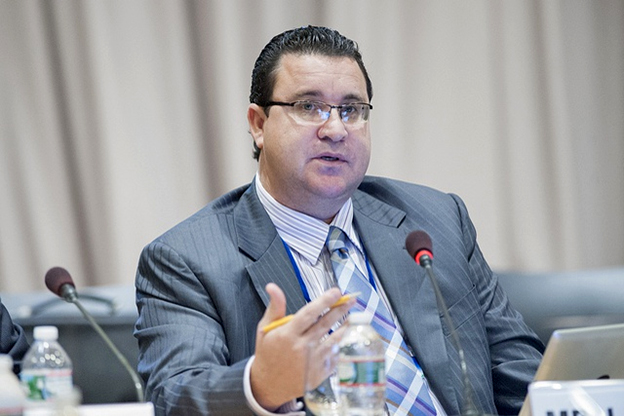The World Bank says Ghana’s public debt stock as of now has exceeded the 80% of Gross Domestic Product (GDP) mark, putting the country in a tighter corner with respect to financing and interest payments.
The Bank of Ghana, in its January 2022 Monetary Policy Report, said the stock of public debt was equivalent to 78.4% of GDP at the end of 2021, compared with 76.1% of GDP at the end of 2020.
The country's total public debt stock stood at about ¢344.5 billion as of November 2021.
But the Country Director of the World Bank, Pierre Laporte, speaking at the One Ghana Movement lecture, said the situation might have changed now as Ghana keeps borrowing.
“The data as we know is close to 80% of GDP. Probably, now as we speak, it might have exceeded.”
“The fiscal deficit [9.7% in December 2021], unfortunately, with COVID-19 needs to be urgently brought down. Inflation must also be brought down. This is an interesting discussion, and we must acknowledge the situation on the ground”, Mr Laporte said
He further said the country is in a very challenging situation “as some of the panel have acknowledged that. We call it a crisis. We can describe it in many ways”.
“It's a really serious situation, and at the World Bank, we've not hidden the fact. When we discussed with the Minister [Ken Ofori-Ata] and with all the people in finance and the Head of State [President Akufo-Addo]. The situation is very difficult right now; Ghana faces a very tough road ahead to restore macro sustainability”, Mr Laporte added.
Economic challenges persisted before COVID-19
The World Bank Country Director emphasised that macroeconomic challenges persisted even with the emergence of the COVID-19 pandemic.
“Yes, COVID-19 has not helped, but even before COVID-19, there were signs that the situation was getting a little bit challenging”.
“So, the key thing is to be transparent with the people”, he suggested.
“Yes, the figures speak for themselves, but not everybody is as educated as we are. Not everyone understands what the numbers mean, so it is important to talk about it like we are doing”, he noted.
“More important is for us to find solutions for the problem,” he added.
IMF is not needed now
There had been suggestions for the country to seek economic and financial support from the International Monetary Fund.
But Mr Larporte said, “my basic principle, at a starting point your country should not go to the IMF, really truly speaking. Many countries in the world are not with the IMF but are performing well”.
“But the reality is different countries are with the IMF…that is why they were established”, he added.
Latest Stories
-
George Twum-Barimah-Adu pledges inclusive cabinet with Minority and Majority leaders
5 mins -
Labourer jailed 5 years for inflicting cutlass wounds on businessman
6 mins -
Parliament urged to fast-track passage of Road Traffic Amendment Bill
7 mins -
Mr Daniel Kofi Asante aka Electrician
7 mins -
Minerals Commission, Solidaridad unveils forum to tackle child labour in mining sector
12 mins -
Election 2024: Engagement with security services productive – NDC
14 mins -
‘Let’s work together to improve sanitation, promote health outcome’ – Sector Minister urges
15 mins -
Ellembelle MP cuts sod for six-unit classroom block at Nkroful Agric SHS
18 mins -
‘I’ll beat the hell out of you if you misbehave on December 7’ – Achiase Commanding Officer
21 mins -
AFPNC leads the charge on World Prematurity Day 2024
27 mins -
Court remands unemployed man over theft of ECG property
33 mins -
Election security rests solely with the police – Central Regional Police Command
35 mins -
NCCE engages political youth activists at Kumbungu on tolerance
35 mins -
‘In Mahama’s era students lacked chalk, but are now receiving tablets’ – Bawumia
45 mins -
Project commissioning not a ploy to attract votes – Oppong Nkrumah
46 mins

